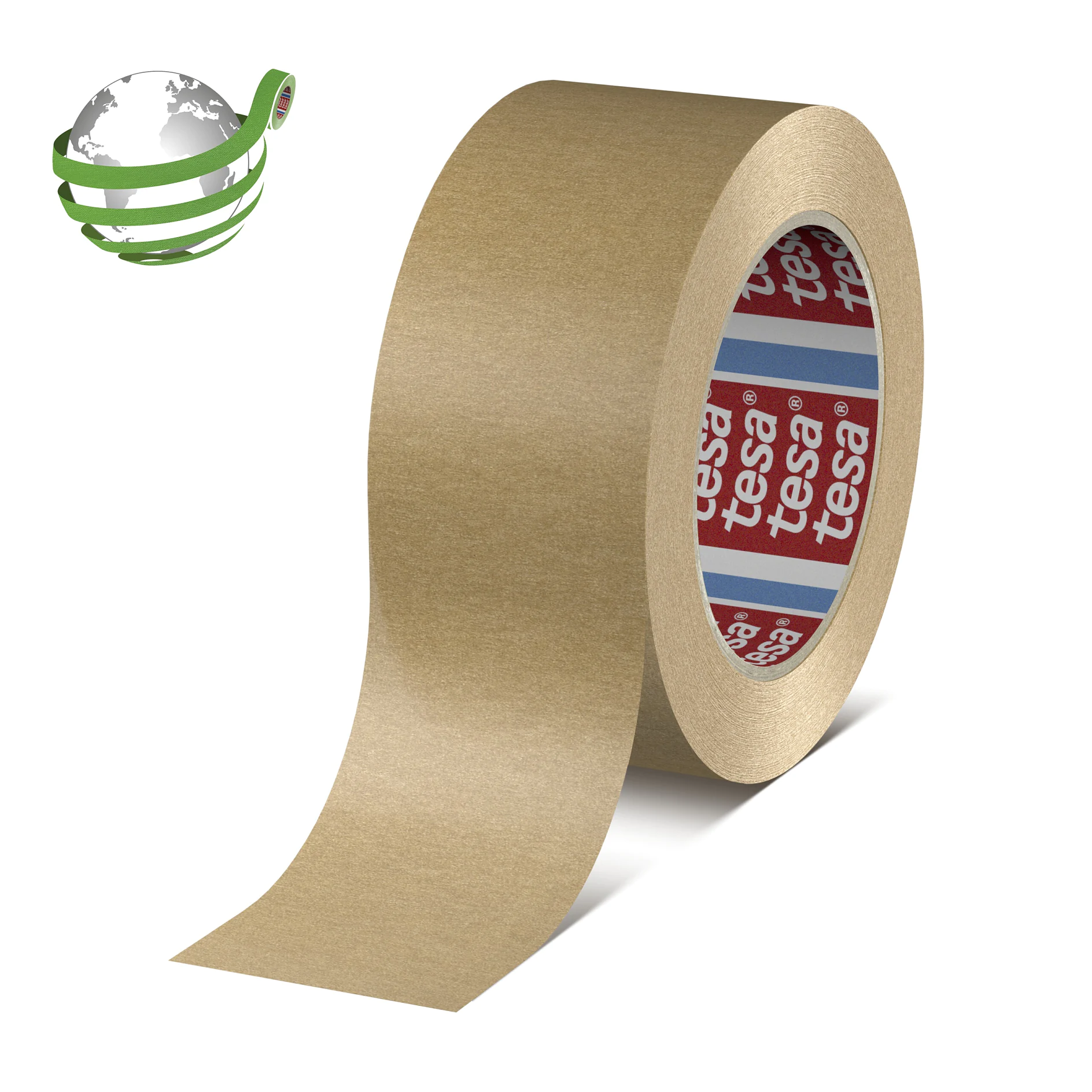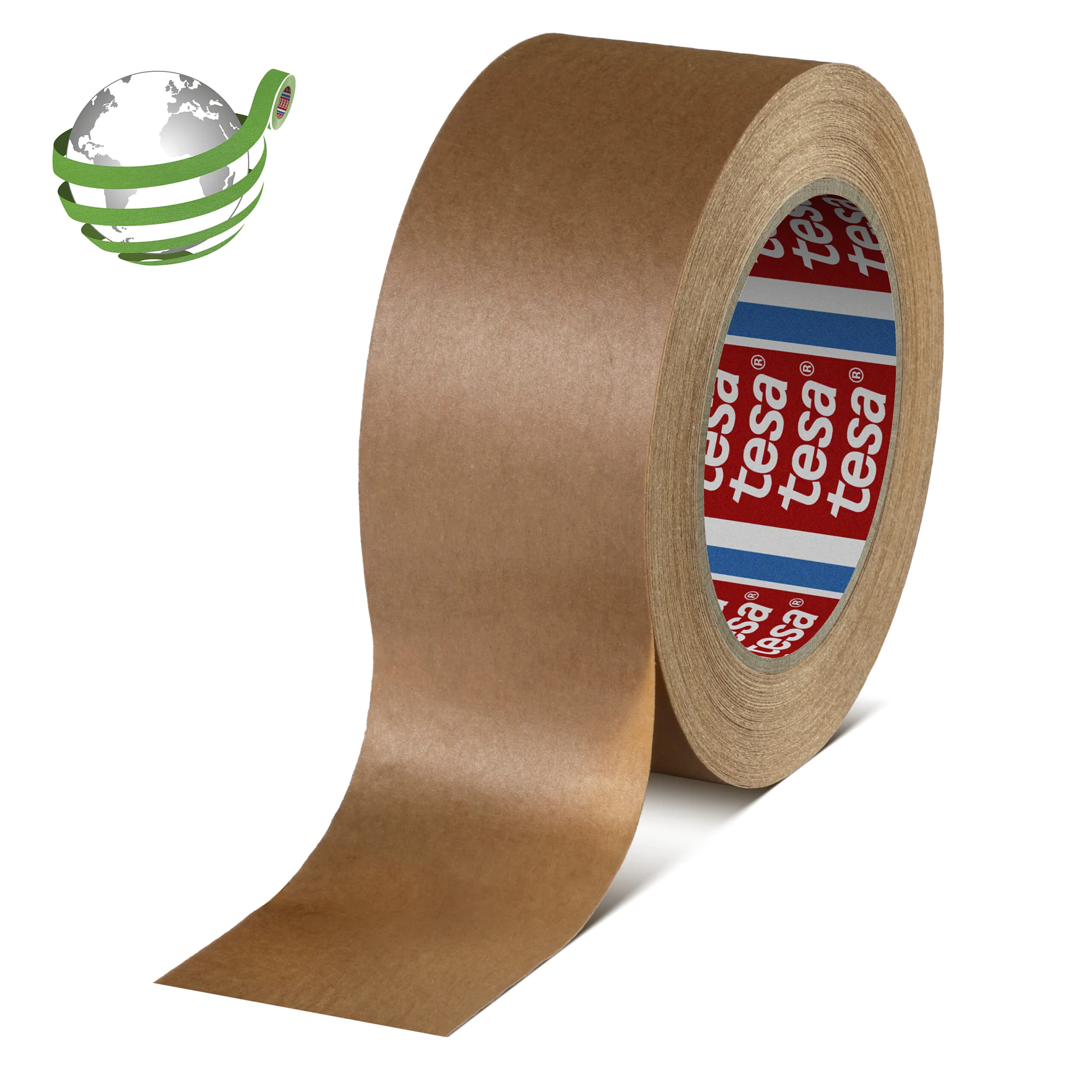Responsible sourcing is one of our strategic action areas. By 2030, we intend to establish full transparency regarding the sustainability of our supply chains, and we aim to increase the share of bio-based or recycled materials to 70%. Ideally, we are also able to prove the responsible origin of the raw materials with accredited certifications. To do so, we primarily count on the FSC® standard for paper products.

Certification matters
Sustainability
As responsible sourcing is an important pillar of our strategy, it is ideal to have a certification that proves the authenticity of our product claims.
FSC® - the standard for paper products
FSC® is a global, non-profit organization dedicated to the promotion of responsible forest management worldwide. Well recognized all over the world and with a strong endorsement by many environmental groups, FSC® defines standards based on agreed principles for responsible forest stewardship that are supported by environmental, social, and economic stakeholders. Since paper and cardboard are key raw materials for tesa, how we source them has a significant impact on our sustainability performance. Therefore, we aim to purchase all the paper and cardboard we use in FSC® quality.

INGEDE – to safeguard and improve paper and cardboard recyclability
Achieving a higher level of sustainability is an important goal for many of our customers – as it is for us. tesa aims to offer sustainability-focused innovations to ensure that our that our customers enjoy benefits such as the end-of-life recyclability of a product.
INGEDE method 12 is the only standard available to determine the recycling behavior of pressure sensitive adhesive tapes (PSAs, e.g., labels and stickers). At tesa, we use for the assessment of the recyclability of packaging applications.
During the paper recycling process, adhesive applications disintegrate upon pulping to stickies (also known as adhesive residues). INGEDE method 12 has been designed to provide an assessment of the removability of adhesive applications in the paper recycling process.
The method provides a removability rating between -20 and 100 points, depending on how well the adhesive residues can be removed.
The main goal of INGEDE methods is to safeguard and improve paper and cardboard recyclability, based on the general requirement that it should be possible to separate adhesive applications mechanically.
Papiertechnische Stiftung (PTS) - Ensuring processing efficiency of paper-based products
When evaluating a paper or board product, it is important to consider its ability to be recycled.
The PTS "recyclability" test method examines whether the product can be efficiently processed in a wastepaper treatment plant, resulting in high-quality secondary fiber material that can be used to produce new paper. In addition to recyclability, it is also important to consider any impurities and sortability issues that may impact the product's overall quality.
The aim is to ensure that the recovered paper is processed as efficiently as possible into a fiber of consistent quality.
The PTS test method is utilized for characterizing the recyclability of various paper products such as board packaging, special paper-based products, and graphic printed products. At tesa, our goal at tesa is to develop more sustainable products by leveraging our expertise and thus, the PTS certification provides concrete evidence of the recyclability factor of our paper-based product range.
The criteria's used in the assessment of the recyclability are:
- Repulpability (Mass percentage of the constituents not usable in papermaking).
- Undisturbed sheet formation (Purity of the furnish mass percentage usable in papermaking regarding stickies or optical inhomogeneities).
- Deinkability (Removability of ink particles).
DIN CERTCO - For products made from recycled materials
DIN CERTCO, a certification body owned by TÜV Rheinland Group, is responsible for issuing DIN marks and other certification marks.
Due to the strict test criteria and the assessment of recognized experts, the DIN CERTCO certification enjoys a high national and international acceptance.
DIN certification is appropriate for products made from recycled materials, including those produced using pre-consumer and post-consumer waste and industrial waste. DIN CERTCO evaluates the quality of and associated ecological and economic benefits.
As part of our responsible sourcing strategy, we aim to obtain certification that verifies the authenticity of our product claims. DIN CERTCO certification for our sustainable products enables us to achieve our objectives and represent our customers.
ISCC PLUS - For bio and circular economy
ISCC PLUS certification is a framework that guarantees the sustainability, traceability, and responsible sourcing of biomass and renewable raw materials in the supply chain.
The ISCC PLUS certification is a voluntary program that applies to the bioeconomy and circular economy sectors, covering a range of products such as food, feed, chemicals, plastics, packaging, textiles, and renewable feedstock created through processes that use renewable energy sources. The requirements for ISCC PLUS certification are the same as those for ISCC EU but can be tailored to meet the specific needs of different markets and applications.
Companies using the mass balance approach can rely on transparent guidelines provided by ISCC PLUS.
ISCC Plus and tesa
As part of our commitment to sustainability, our tesa plant has obtained ISCC PLUS certification. This guarantees that tesa applies the mass balance approach correctly and transparently, and that sufficient biomass-balanced adhesive components are used throughout the supply chain.


